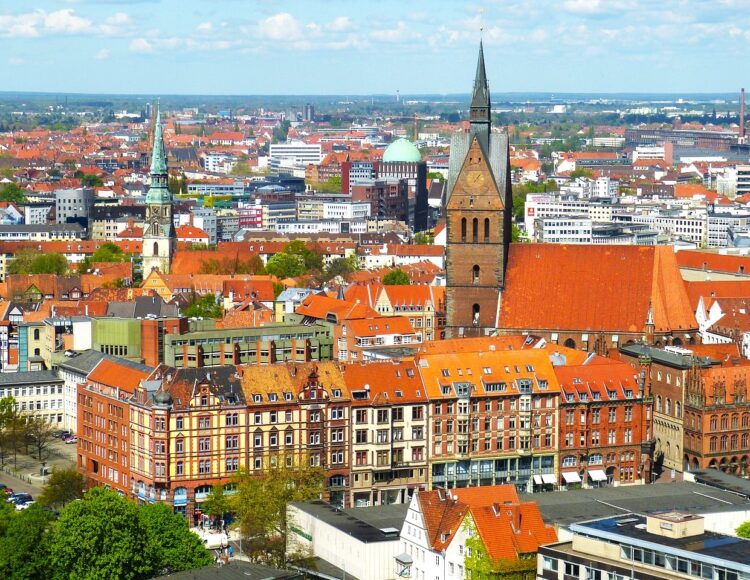The InvestEU Programme, which provides sustainable financing to projects supporting EU policies as part of the 2021-2027 Multiannual Financial Framework (MFF), is already benefitting the social and affordable housing sector.
In August 2022, the European Investment Bank (EIB) and hanova municipal housing signed a €60 million loan to build 640 new rental apartments in Hanover, of which 232 are social and 408 are affordable housing units.
The classical mortgage loans do not finance 100% of the project cost. Thus, relying on the InvestEU guarantee from the EU budget, the EIB will be able to fill a financing gap, as by offering an unsecured loan with a very long maturity. One of the constraints of the funding mechanism, however, is the additional administrative requirements, whose application can sometimes be more time-consuming.
Hanover, the capital of the federal state of Lower Saxony, has a growing economy and is an attractive urban centre, with a quickly expanding population and therefore rising demand for housing. As in many urban areas across Germany, rents have risen sharply in recent years. The project helps address the imbalances in the local housing market by providing adequate and affordable housing for local low and medium-income residents. In Lower Saxony, the income threshold for social housing is €23, 000 a year for a two-person household.
Hanova’s CEO Karsten Klaus said: “We are pleased to have found a partner in the EIB who will support hanova in its goal of providing the city of Hanover with affordable, energy-efficient and sustainable new housing.”
hanova has been Hanover’s housing company for almost a hundred years, since 1927 and owns around 15,000 housing units. The company supports the city’s housing policy, in particular in building new social and affordable flats for rent.
With or without the backing of InvestEU, the EIB only finances social and affordable housing for rent and supports projects with high energy efficiency standards. For new construction, the energy efficiency levels should be 10% above the nearly-zero energy building level (nZEB). For renovations, eligible projects are either major renovations (as defined by the Energy Performance of Buildings Directive) and/or projects leading to a reduction in primary energy demand of at least 30%.
In the case of the hanova project, 82% of the buildings are expected to achieve an energy performance that will be at least 20% better than the German nearly zero-energy building standard (KfW 55). The rest will target an energy performance of at least 10% better than this standard.
What is new in the InvestEU programme?
· It expands the implementing partner’s risk appetite and financing options compared to traditional loans thanks to the support of a guarantee from the EU budget;
· There will be other implementing partners besides the EIB Group, such as the CEB, national promotional banks and institutions;
· It has a specific window for investment in the social sector.
Success factors
· In Germany, housing is a highly regulated sector so the EIB can finance social housing operations relatively easily;
· hanova presented a bankable project and did not need an intermediary;
· The project combines social and environmental impacts;
· The EIB was able to provide long maturity (27 years), which was indispensable for ensuring the affordability of rents in the long term for the tenants of hanova.
Housing Europe members and partners can read more about InvestEU and other EU funding opportunities on our website.
